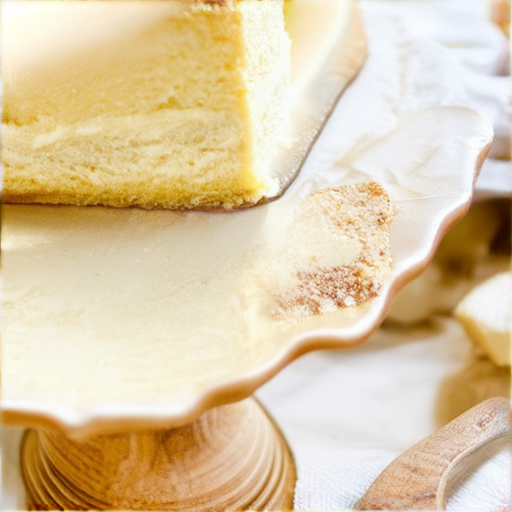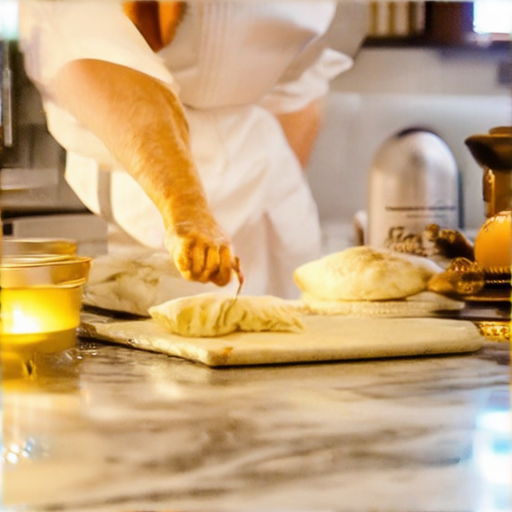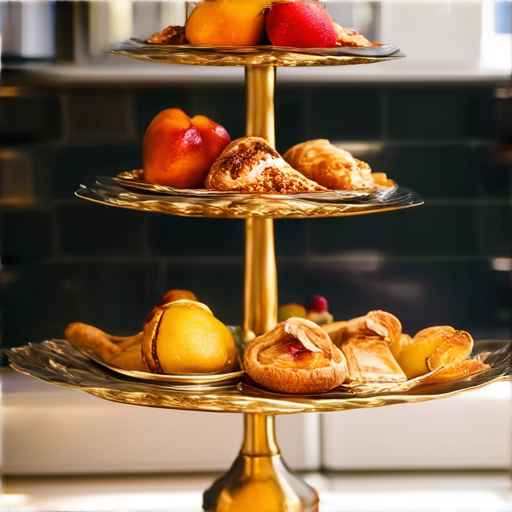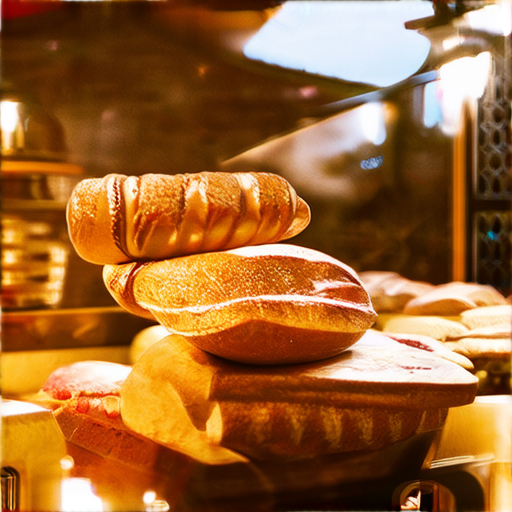For those who have ever struggled to achieve the perfect balance of texture and flavor in their baked goods, the pursuit of baking perfection can seem like an elusive dream. However, with the right combination of technique, patience, and practice, anyone can master the art of baking and produce consistently delicious results. Whether you’re a seasoned baker or just starting out, understanding the fundamental principles of baking and mastering essential techniques such as measuring ingredients correctly, mixing and blending, and achieving even baking temperatures and times can make all the difference between a mediocre bake and one that truly impresses.

The 7 Essential Rules for Baking Perfect Cake
We’re excited to share our expertise on how to bake the perfect cake, and we’ve distilled it down to seven essential rules that will take your baking game to the next level.
-
Rule 1: Measure Ingredients Accurately
Measuring ingredients accurately is crucial in baking. To ensure you get the best results, invest in a digital kitchen scale and measuring cups. This will help you measure dry and liquid ingredients precisely, which is vital in achieving the right texture and consistency in your cake.
-
Rule 2: Use Quality Ingredients
Using high-quality ingredients is essential in baking. Choose fresh eggs, real butter, and pure vanilla extract to give your cake the best flavor and texture. Don’t skimp on ingredients, as this can affect the overall quality of your cake.
-
Rule 3: Respect the Recipe
Respecting the recipe means following the instructions carefully and not making unnecessary substitutions or adjustments. Recipes are developed to work together in harmony, so don’t try to change the ratio of flour to sugar or swap out ingredients without understanding the consequences.
-
Rule 4: Understand Leavening Agents
Leavening agents like baking powder and baking soda are critical in helping your cake rise. Make sure you understand how these agents work and use them correctly to avoid a dense or flat cake.
-
Rule 5: Don’t Overmix
Overmixing is a common mistake that can lead to a tough or dense cake. Mix wet and dry ingredients separately and gently fold them together until just combined. This will help preserve the delicate structure of your cake.
-
Rule 6: Temperature Control
Temperature control is crucial in baking. Make sure your oven is at the correct temperature, and use a thermometer to double-check. This will help you achieve the perfect golden-brown crust and a moist interior.
-
Rule 7: Practice Makes Perfect
Baking is an art that requires practice to master. Don’t be discouraged if your first attempts don’t turn out perfectly – keep trying, and you’ll soon develop the skills and confidence to bake stunning cakes.
By following these seven essential rules, you’ll be well on your way to becoming a skilled baker and producing delicious cakes that impress friends and family alike.
Baking Perfectly
To bake perfectly, it’s essential to understand the basics, avoid substitutions, and follow a few simple rules.
-
Understand the Basics
- Familiarize yourself with common ingredients and their roles in baking.
- Learn about different types of flour, sugar, leavening agents, and fats.
- Understand how temperature, humidity, and altitude affect baked goods.
-
Avoid Substitutions
- Don’t substitute ingredients without understanding their impact on the final product.
- Be cautious when substituting flours, sugars, or fats, as they can alter the texture and flavor.
- When substituting spices or extracts, start with small amounts and adjust to taste.
-
Follow Simple Rules
- Measure ingredients accurately and consistently.
- Use room temperature ingredients for optimal mixing and rising.
- Don’t overmix batter or dough, as it can lead to tough or dense baked goods.
- Respect recipe instructions and don’t skip steps or reduce cooking times.
-
Tips for Success
- Invest in quality baking equipment, such as a digital scale and a stand mixer.
- Practice patience and persistence, as baking requires trial and error.
- Experiment with new recipes and flavors to develop your skills and confidence.
- Stay organized and keep your workspace clean and clutter-free.
By mastering these fundamental principles and following our expert advice, you’ll be well on your way to becoming a skilled baker and producing delicious treats that impress friends and family alike.
For more baking tips and inspiration, visit our Baking Tips page or explore our extensive library of Recipes.
At Memories Restaurant, we’re passionate about sharing our love of baking with you. Join us on this culinary journey and discover the joy of perfecting your baking skills!

The Key to Success in Baking
To be a successful baker, you need to have the right ingredients, combine them in the right order, and bake at the right temperature.
- Quality Ingredients: Using fresh and high-quality ingredients is crucial in achieving the perfect baked goods. This includes flour, sugar, butter, eggs, and other essential components.
- Proper Measurement: Measuring ingredients accurately is vital in ensuring that your baked goods turn out right. Use digital scales or measuring cups to get precise measurements.
- Correct Mixing Techniques: Mixing ingredients correctly can make or break your baked goods. Overmixing can lead to tough bread, cakes, or cookies, while undermixing can result in uneven textures.
- Appropriate Temperature and Time: Baking at the right temperature and for the correct amount of time is essential in achieving the perfect texture and consistency.
- Patient Practice: Baking requires patience and practice. Don’t be discouraged if your early attempts don’t turn out as expected – keep trying, and you’ll eventually develop the skills and confidence needed to become a skilled baker.
At Memories Restaurant, we understand the importance of quality ingredients, proper measurement, correct mixing techniques, and patient practice in achieving success in baking. Our team of experienced bakers uses only the freshest ingredients and employs tried-and-tested methods to create delicious treats that our customers love.
Tips for Improving Your Baking Skills
- Experiment with New Recipes: Try out new recipes and experiment with different flavors and ingredients to broaden your baking horizons.
- Invest in Quality Equipment: Invest in a good mixer, oven thermometer, and other essential equipment to ensure that your baked goods turn out perfectly.
- Practice Regularly: Regular practice helps to develop your baking skills and builds your confidence in the kitchen.
- Learn from Others: Watch cooking videos, attend baking classes, and learn from experienced bakers to gain valuable insights and tips.
Conclusion
Becoming a successful baker takes time, patience, and practice. By focusing on quality ingredients, proper measurement, correct mixing techniques, and patient practice, you can develop the skills needed to create delicious baked goods that impress family and friends alike. At Memories Restaurant, we’re committed to helping you achieve your baking goals, whether you’re a seasoned pro or just starting out.

The 7 Principles of Baking
We’re excited to share our expertise on the fundamental principles of baking, which are essential for creating delicious treats.
-
Wet Ingredients
Baking involves combining various types of wet ingredients, such as eggs, butter, milk, and yogurt, to create a smooth and consistent texture.
When selecting wet ingredients, consider factors like freshness, quality, and ratio to dry ingredients.
-
Dry Ingredients
Dry ingredients, including flour, sugar, cocoa powder, and spices, provide structure, texture, and flavor to baked goods.
Choose high-quality dry ingredients that are fresh and properly stored to ensure optimal results.
-
Leavening Agents
Leavening agents, such as baking powder, baking soda, and yeast, help baked goods rise and give them lightness and texture.
Understand how different leavening agents work and choose the right ones for your recipe.
-
Flavoring
Flavorings, including vanilla extract, nuts, and citrus zest, add depth and complexity to baked goods.
Select flavorings that complement the other ingredients in your recipe and balance sweetness and acidity.
-
Heat
Heat is a critical component of baking, as it affects the chemical reactions that occur during cooking.
Understand how temperature, oven type, and baking time impact the final product.
-
Mixing Methods
Mixing methods, including creaming, folding, and whisking, determine the texture and consistency of baked goods.
Choose the right mixing method for your recipe and ingredients to achieve the desired result.
-
Chemical Reactions
Chemical reactions, including gelatinization, denaturation, and emulsification, occur during baking and affect the final product.
Understand these chemical reactions and how they impact the texture, flavor, and appearance of baked goods.
The Golden Rule in Baking Explained
In the world of baking, there’s a fundamental principle that governs the outcome of our creations – the golden rule.
- The Longer You Mix, the Stronger the Gluten
- The More Gluten, the Better the Chew
This simple yet crucial concept has been passed down through generations of bakers, and it’s essential to understand its implications on our baked goods.
- Gluten Development: When we mix flour, water, yeast, and salt, the gluten network forms, giving bread its structure and texture.
- Overmixing: Overworking the dough can lead to excessive gluten development, resulting in tough, dense, or even inedible bread.
- Undermixing: Conversely, undermixing may result in a lack of gluten structure, causing the bread to collapse or become flat.
To master the golden rule, it’s crucial to strike the perfect balance between mixing and resting the dough. By understanding the role of gluten in baking, we can create delicious, tender, and well-textured bread that satisfies our cravings.
At Memories Restaurant, we take pride in our commitment to traditional baking methods, carefully balancing the art and science behind each recipe to deliver exceptional flavors and textures.
Whether you’re a seasoned baker or just starting out, embracing the golden rule will elevate your baking game and unlock a world of possibilities in the kitchen.

Becoming Better at Baking
To become a skilled baker, it’s essential to understand the fundamentals of baking, experiment with new recipes, and continuously learn from your mistakes.
-
Master Basic Techniques
Develop a solid understanding of fundamental baking techniques, such as measuring ingredients accurately, mixing dough correctly, and controlling oven temperatures.
- Learn how to properly measure dry and liquid ingredients to ensure consistent results.
- Practice mixing dough until you develop a sense of when it’s ready to be rolled out or placed in the oven.
- Invest in an oven thermometer to ensure your oven is at the correct temperature.
-
Experiment with New Recipes
Try new recipes and flavors to broaden your baking horizons and discover what works best for you.
- Start with simple recipes and gradually move on to more complex ones.
- Experiment with different types of flour, sugar, and spices to find the perfect combination for your baked goods.
- Don’t be afraid to try new ingredients and flavor combinations – it’s all part of the learning process!
-
Continuously Learn and Improve
Stay up-to-date with the latest baking trends, techniques, and ingredient innovations to continually improve your skills.
- Follow reputable baking bloggers, YouTube channels, and social media accounts for inspiration and tips.
- Attend baking workshops, classes, or online courses to learn from experienced bakers and instructors.
- Join online baking communities or forums to connect with fellow bakers, share knowledge, and learn from others.
By mastering basic techniques, experimenting with new recipes, and continually learning and improving, you’ll become a skilled baker capable of producing delicious treats that impress family and friends alike.
Tips for Success
-
Measure Ingredients Accurately
Measuring ingredients correctly is crucial in baking. Use digital scales or measuring cups to ensure accuracy.
-
Don’t Overmix
Overmixing can lead to tough, dense baked goods. Mix wet and dry ingredients separately and gently fold them together.
-
Respect Ingredient Ratios
Ingredient ratios are critical in baking. Don’t substitute ingredients or alter ratios without understanding the consequences.
-
Practice Patience
Baking requires patience. Allow dough to rest, let cakes cool completely, and don’t rush the baking process.
Recommended Resources
- King Arthur Flour offers a wealth of baking knowledge, recipes, and tutorials.
- The Better Homes and Gardens website features a variety of baking recipes, tips, and techniques.
- The Epicurious website provides a vast collection of recipes, cooking techniques, and baking advice.

0 Comments